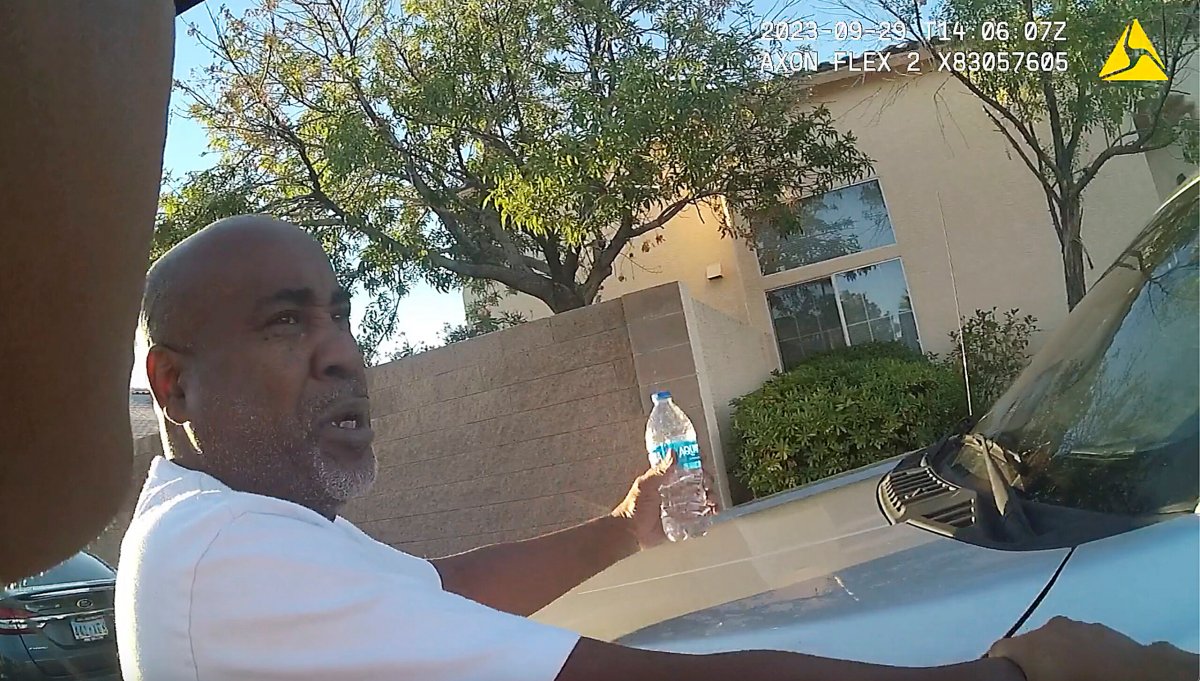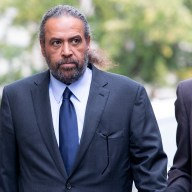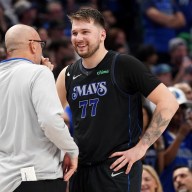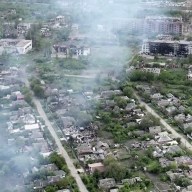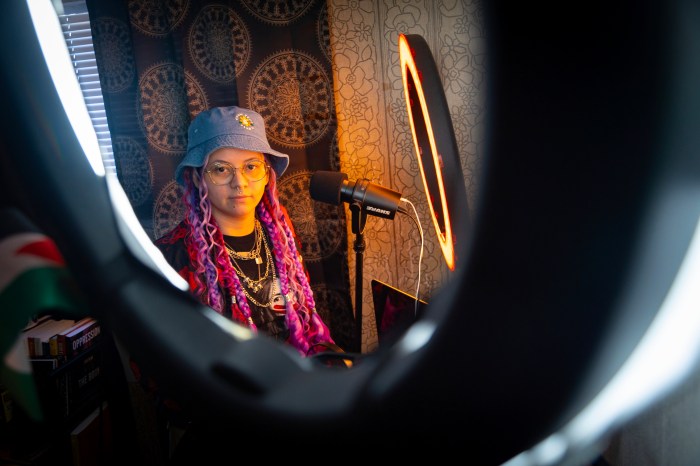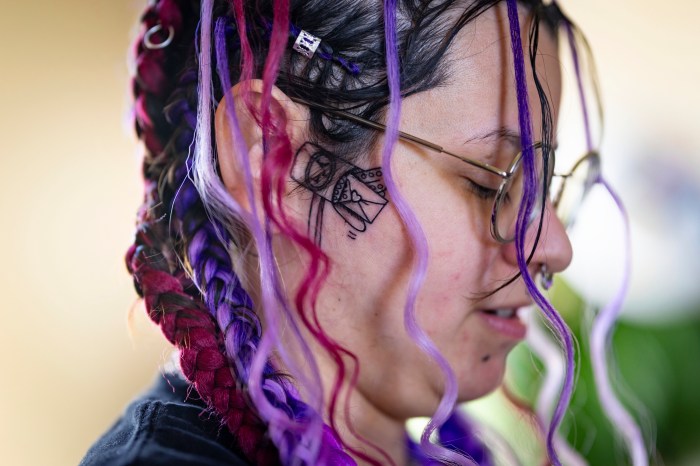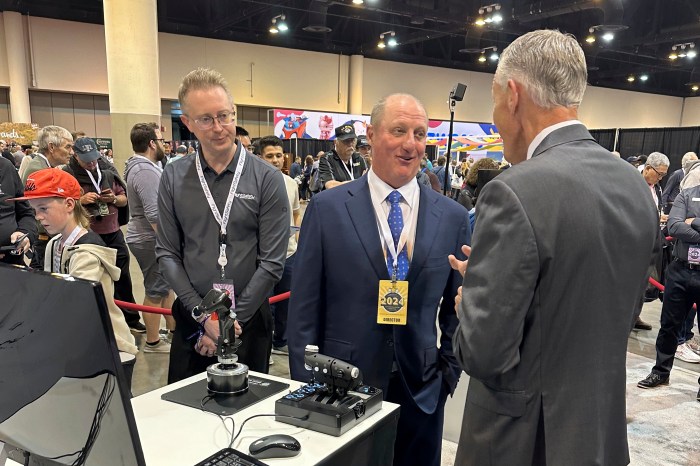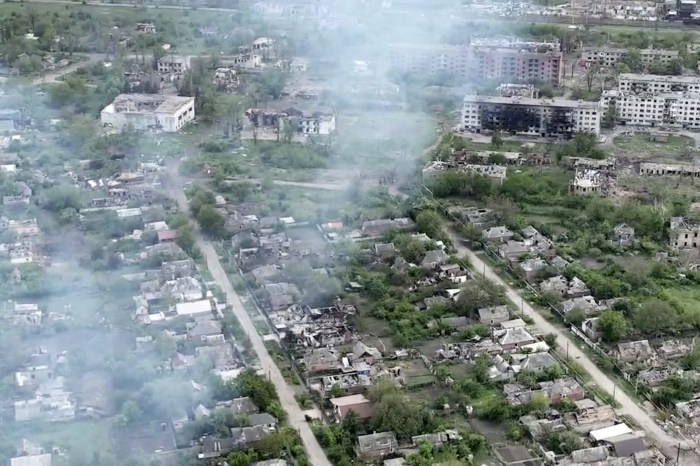LAS VEGAS (AP) — The man charged with murder in the 1996 killing of Tupac Shakur knew the gravity of his arrest last week near his home on the outskirts of Las Vegas, according to police body camera footage released Friday.
“So what they got you for, man?” an officer asks Duane “Keffe D” Davis.
“Biggest case in Las Vegas history,” Davis says, recounting the date that Shakur was gunned down — “September 7th, 1996.”
Police and prosecutors allege Davis was the mastermind behind the drive-by shooting near the Las Vegas Strip that killed Shakur at the age of 25.
Now, more than 27 years later, Davis was handcuffed around the wrists and in ankle shackles in the backseat of Las Vegas police car headed toward a county jail, where he remains held without bond.
“I ain’t worried,” Davis told the officer. “I ain’t did (expletive).”
The police videos, totaling more than an hour of footage, show Davis arrested around sunrise on Sept. 29 while walking in his otherwise quiet neighborhood.
“Hey, Keffe. Metro Police,” an officer said. “Come over here.”
Davis, holding a water bottle, cooperated as he was patted down and handcuffed next to an unmarked police vehicle.
The 60-year-old had been a long-known suspect in the case. He publicly admitted his role in the killing in interviews ahead of his 2019 tell-all memoir, “Compton Street Legend.” His arrest came two months after police raided his home, renewing interest in one of hip-hop’s most enduring mysteries.
In the videos, Davis recalled the July 17 raid and peeking over a gate at the same time as a SWAT officer. He said his arrest that morning was much more low-key.
As they drove on the freeway en route to police headquarters to interview Davis, he asks if he was followed the previous night. The officer says no.
“So why you all didn’t bring the media?” Davis said.
The officer asked why police would bring the media.
“That’s what you all do,” Davis said.
The self-described gangster from Compton, California, hasn’t yet entered a plea in the case, and he denied a request from The Associated Press for an interview at the jail. His longtime lawyer in Los Angeles, Edi Faal, told AP he has no comment on Davis’ behalf.
Davis told police that he had moved to the Las Vegas area in January because of his wife’s job. But the audio is redacted when police later ask him what he has been doing since the move.
In an indictment unsealed last Friday in Clark County District Court, Davis is accused of orchestrating the killing of Shakur and providing his nephew, Orlando “Baby Lane” Anderson, with the gun to do it. Anderson, who denied involvement in Shakur’s killing, died in 1998.
Grand jurors also voted to add sentencing enhancements for the use of a deadly weapon and alleged gang activity. If Davis is convicted, that could add decades to his sentence.
In Nevada, a person can be convicted of murder for helping another person commit the crime.
Davis’ first court appearance this week was cut short when he asked the judge for a postponement while he retains counsel in Las Vegas. He’s due in court again Oct. 19.
Authorities say Shakur’s killing stemmed from a rivalry and competition for dominance in a musical genre that, at the time, was dubbed “gangsta rap.” It pitted West Coast members of a Crips sect that Davis has said he led in Compton against East Coast members of a Bloods gang sect associated with rap music mogul Marion “Suge” Knight, founder of Death Row Records, the music label representing Shakur at the time of his death.
Antczak reported from Los Angeles. Associated Press writer Felicia Fonseca in Flagstaff, Arizona, contributed.

